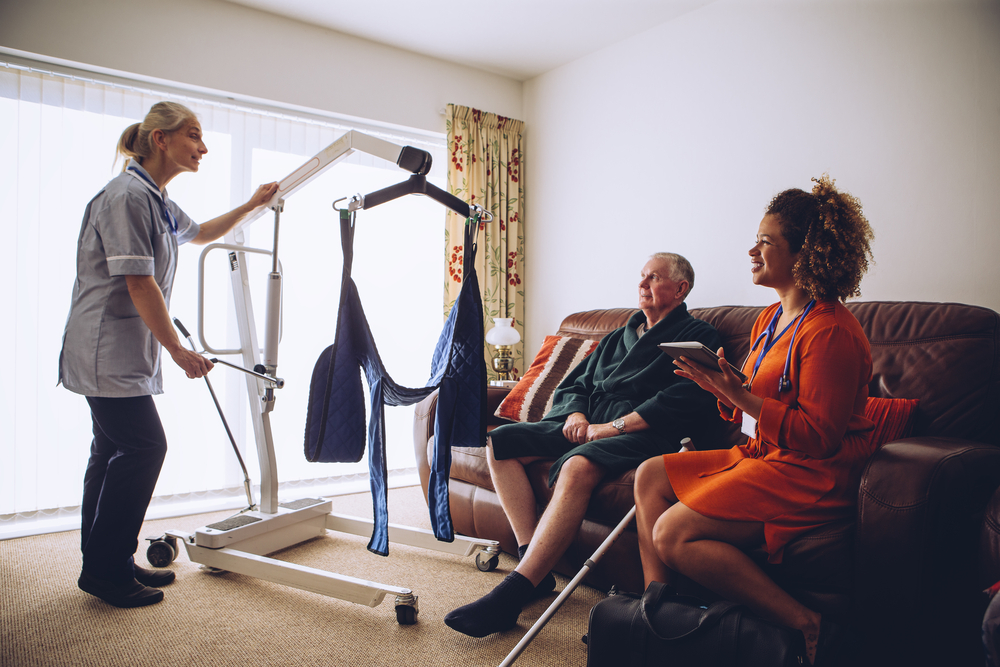 If you are new to medical billing, you may be wondering why there are both durable medical equipment (DME) and home medical equipment (HME) codes for medical equipment billing. What's the difference? From the purpose of these two terms to the rigorous requirements that accompany them, we will explore how insurance views these billing codes and why that matters to your claims.
If you are new to medical billing, you may be wondering why there are both durable medical equipment (DME) and home medical equipment (HME) codes for medical equipment billing. What's the difference? From the purpose of these two terms to the rigorous requirements that accompany them, we will explore how insurance views these billing codes and why that matters to your claims.
It Began With DME
Originally, all the equipment prescribed by a physician based on a medical need for patients was considered DME. The location of the item being used did not matter and the coding was created for tangible products, not services. On the other hand, very few services were involved in the home care industry. Cut to today, and it is easy to see why HME billing was created with so many tiers of services used to satisfy patient care needs at home.
Introducing HME
The result of this level of care was a multitude of HME service options. Simply put, DME remains focused on physician-prescribed medical equipment where HME describes all that goes on at the patient's home to ensure the patients are able to safely perform necessary actions using the equipment. Since there are many aspects of service required by some patients for home care, the billing of these services along with required equipment can become a source of frustration as denied or rejected claims build.
Qualifying for DME
In order to qualify for DME, most insurance carriers have a fairly lengthy checklist the provider must complete before your claim will be approved and reimbursement can be administered. These requirements start with a home assessment to ensure the item will be able to perform its purpose in a safe manner. Additionally, the item delivery, assembly of the equipment, and explanation of how to use and care for the equipment must be performed by a trained technician. Then, there is the customer service department that must be available 24 hours a day seven days a week in case of emergency or maintenance concerns and the capability of retrieving the item from the patient when necessary.
Back at the office, your billing team verifies insurance coverage, makes sure all the documentation to show a physician has declared this item to be necessary has been provided, and communicates with the insurance carrier on behalf of the patient. This oftentimes means lots of time spent training employees, resolving claims disputes, challenging incorrect reimbursements on behalf of the patient, or discovering and correcting billing claims submission errors. Hence, many organizations outsource the billing portion of the DME transaction to reduce the number of errors, increase the volume of approved claims, and decrease the amount of time spent waiting for reimbursement.
Qualifying for HME
To qualify for HME coverage, there are extra requirements that must be met. Some of these criteria include establishing an internal communication to meet patient needs using cell phones or other helpful devices that enable employees to quickly and effectively discuss patient care needs, complete surveys, and attain accreditation and FDA licensure for oxygen. Moreover, there may be state-specific regulations requiring licensure or certifications.
Of course, then there are the professionals who must hold licenses and credentials before HME services may be rendered. Some examples of services that may be deemed HME could be in-home visits from nurses, physical therapists, dieticians, diabetic counselors, and respiratory therapists. While it is important to continue supporting the path of healing in the comfort of one's own home as opposed to unnecessarily occupying beds in hospitals, this booming trend is creating a more complex billing system that can be difficult to sort through without extensive training and experience. Since training and experience equates to a significant portion of time and money, organizations are increasingly relying upon outsourcing in an effort to better allocate such resources.
In conclusion, DME billing covers equipment where HME billing concerns the cooperative effort to effectively manage the use of the equipment and patient care within the home. With so many added hoops to step through in order to provide DME and HME products and services, outsourcing the billing portion of the industry is one way businesses can limit the risk of error thereby allowing a more efficient balance of allocated resources to boost profitability. If you are in need of DME and HME billing services, we offer a variety of a-la-carte services designed to make the billing portion of your business accurate, efficient, and worry-free. Contact us via our online form or by calling our office at (678) 273-3404 for a free in-depth needs assessment to find out how easy and affordable it is to work with our team of experts. Let our experience be your gain. Call today!